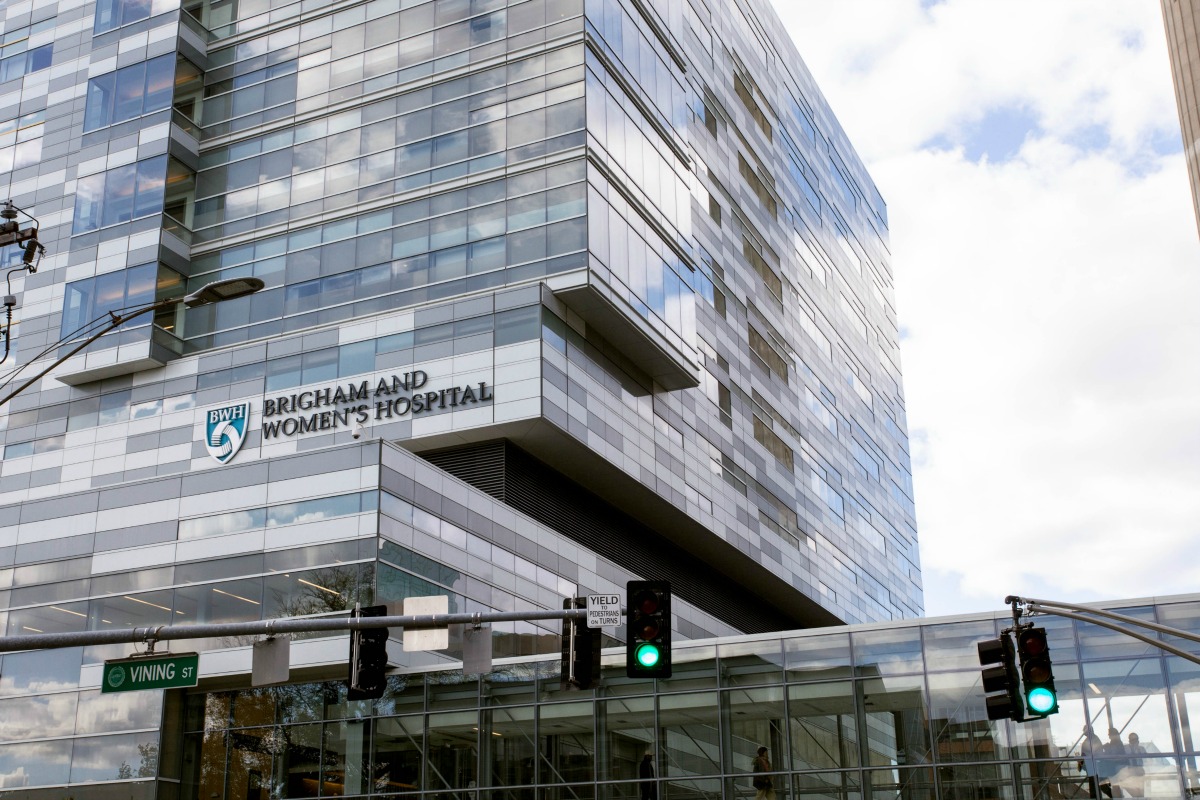Brigham and Women’s, Nurses, Avoid One-Day Strike

Photo by Alex Lau
UPDATED, June 26:
As of early Sunday morning, nurses from Brigham and Women’s Hospital (BWH) will not strike on Monday. After 23 negotiating sessions, the hospital and the Massachusetts Nurses Association (MNA) reached a tentative three-year contract agreement, which must be approved by the 3,300 BWH nurses represented by the union before being finalized.
“I want to thank the negotiation team and the entire Brigham family for their commitment and dedication during this challenging time,” Brigham and Women’s Healthcare President Elizabeth Nabel said in a statement. “The last few weeks have been difficult for everyone involved, and this news will enable us to move forward together as a community and continue to provide the superb care to our patients that the Brigham is known for.”
The MNA released its own statement, expressing happiness at avoiding a strike. “We could not have done this without the public’s wide support and our labor, legislative and community allies,” it reads. “This win is the patient’s win, the nurse’s win and the public’s win. Thank you!”
Original story:
Just hours before a last-ditch negotiation effort and days before a potential strike, nurses at Brigham and Women’s Hospital (BWH) are still unsatisfied with working conditions at the hospital.
Hospital officials and nurses will meet Friday—for the 22nd time—for one last attempt at agreement. If that discussion isn’t successful, thousands of nurses plan to go forward with a one-day strike on Monday, June 27, the first at a Boston hospital in almost 30 years.
Nurses on the bargaining committee say there are three major issues at hand: staffing, security, and equal benefits for all nurses. Ron Walls, BWH’s chief operating officer, however, says “the main issues being negotiated include wages and health insurance.”
The nurses claim that, over time, the hospital’s pool of nurses, patient care associates, secretaries, and other support staffers has dwindled, making it difficult to provide the kind of care the Brigham—one of the country’s top 10 hospitals—is known for. “I almost feel their model is to do more with nothing,” says Jim McCarthy, a surgical recovery nurse on the bargaining committee.
Security concerns, the nurses say, revolve largely around the murder of Dr. Michael Davidson, who was killed on the job last year by the son of one of his late patients, as well as more minor incidents involving patients and their family members.
Kelly Morgan, a labor and delivery nurse and vice chair of the bargaining committee, says Davidson’s death, in particular, should inspire the hospital to improve safety measures. “We didn’t think that was going to happen in our hospital; nobody ever thinks that’s going to happen in their hospital,” she says. “We’re not trying to capitalize on that, but we’re trying to learn from that.”
Morgan notes that the Brigham, which operates under Partners Healthcare, has already made $2 million in improvements, and has hired a security consultant to access and inform its practices. Still, McCarthy says certain changes, like having a police officer in the emergency department at all times and hanging more prominent “no weapons” signs, still need to be made. (The hospital, for its part, maintains that the nurses have not advocated as strongly for security changes as they claim.)
In terms of benefits, the committee says nurses should have the option of choosing between Partners Healthcare insurance, which new nurses currently must enroll in, and union health insurance. “If we have this two-tier system where people are forced into it, that’s just a way to bust the union, more or less,” McCarthy says.
The committee is also advocating for another pay step in the current raise system, since many long-time nurses have not seen a pay increase in years. The current system offers nurses a 5 percent salary increase every year, but almost half of BWH nurses have already reached the top of the pay pyramid, leaving their wages stagnant.
For his part, Walls says Brigham nurses are fairly compensated and treated, and stands by the hospital’s efforts to reach a compromise with its staff.
“The hospital leadership team and the entire BWH community has the utmost respect for our nurses and the unparalleled care they provide to our patients and their families every day,” he says. “The fact that they are among the highest-paid locally, regionally, and nationally is testament to how much we value them and their role.”
According to the Bureau of Labor Statistics, median pay for a registered nurse in 2015 was $67,490 per year; the Brigham says its average nurse makes $106,000 annually.
Walls also says the Brigham is still working dutifully to avoid a strike on Monday. “We will continue to negotiate in good faith and sincerely hope that we can reach an agreement with the union and avoid a strike,” he says.
Still, the hospital has already begun taking precautionary measures. It’s operating at roughly 60 percent of its usual volume, canceling some elective surgeries and admitting fewer patients in need of high-risk care like surgery, oncology, and serious burn treatment. The hospital is also planning to hire 700 temporary nurses if the strike moves forward.
It’s still possible that the two parties will reach a compromise Friday, a result that both Morgan and McCarthy say would be ideal for everyone involved.
“None of us, not one nurse in that hospital, wants Monday to come and happen,” Morgan says. “We do not want to leave our patients. But we will if we have to, because we need to take a stand—not only for ourselves, but for those patients. We’re fighting for them as much as we’re fighting for us.”


